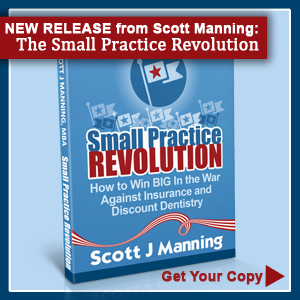Who is Their Customer Really?
December 30th, 2012 // 1:33 pm @ Million Dollar Methods

I discovered a new concept about a month go that really made me think. It’s been around for a while, but this was the first time I was introduced to it.
I would say most people don’t like dealing with UPS or any package delivery service, but its become part of our everyday lives. With buyers preference for shopping online and the expansion of local to global – we are shipping a lot of stuff.
But here is a thought-provoking question: If you order a package from Amazon, shipped by UPS; from UPS’s perspective – who is their customer? Amazon or you?
Think about it for a minute.
The easy answer is “they are both UPS’s customers” – but that won’t work here. I want a definite answer.
Is it Amazon? They have to integrate with their shipping protocols, are required to negotiate price, and the ones who sign the service contract.
Or are you the customer? You pay the price for shipping in most cases, you are the end consumer of what UPS delivers, and your satisfaction is tied to timely and safe delivery.
So what’s your answer? Who is the UPS’s customer?
Well why don’t we check with UPS. The new concept I referenced earlier is called ‘My Choice’ from UPS. It allows me to choose WHEN and WHERE I want to receive packages. If I have a packaged headed to my office on Wednesday – I can change deliver to my home on Friday.
This of course has premium levels of membership and warrants a small fee for your convenience. Read more details from the Wall Street Journal here…
I believe this is a brilliant move by UPS. Not only does it generate more revenue, create loyal recipients, it also creates a differentiate between FedEx.
And it delivers to us, a great lesson in marketing…
UPS realized that the product buyer is their customer. For decades its treated the shipper as their customer and left hefty sums of money on the table as a consequence.
The customer bares the cost, the customer can demand change.
This is a big shift for UPS. Your business may not have a ‘big shift’ opportunity, but you can certainly apply the principles.
Think about who your customer is, but also think about the other people involved ahead of and behind you in the product cycle. Is there value you can deliver to others along that cycle?
To finish the story I started, I was expecting an important package but was going to be traveling the day it was scheduled to be delivered. By postponing delivery I avoided an expensive shipment from sitting on my porch for several days. Next time I have a choice for delivery service, who do you think I’ll pick?
Category : Blog


